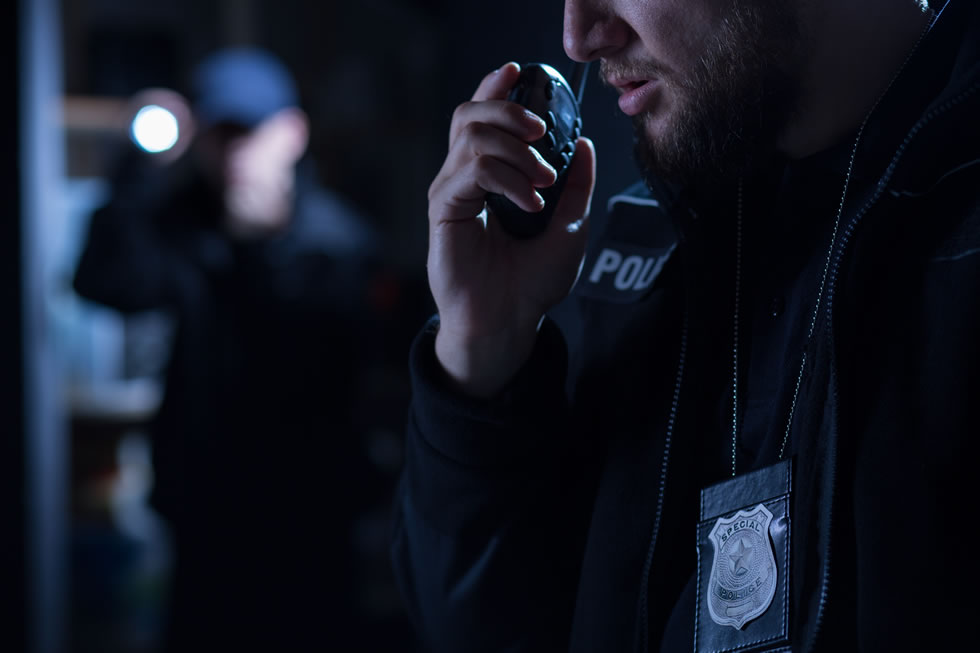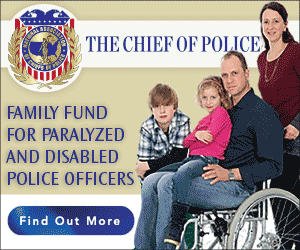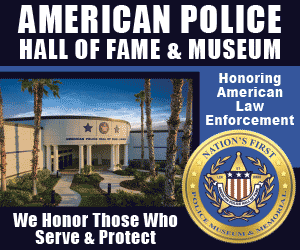We have seen the images of violent protestors practically strolling into the United States Capitol with very little opposition from some law enforcement officers. In contrast, other images displayed law enforcement officers fighting for their lives. It is easy to surmise that there is something amiss with respect to why some officers were buddying up to protestors and others were not. There is plenty of political discourse from pundits in why officers operated so differently.
Regardless, this disparate conduct from some officers must be addressed and investigated by law enforcement leaders. Why did it seem that some officers appeared complacent in dealing with potentially dangerous individuals? Why were protestors given a professional courtesy only privy to those in law enforcement?
It is unfair to compare all demonstrations. There may not be a need for a heavily-armed police presence at some marches, such as Mothers Against Drunken Driving. At other protests, such as the recent unrest in Portland, Ore., police had to use a different approach. Some organized demonstrations require pre-planning for months, while others like the Capitol siege are not premeditated and are spur-of-the-moment outpourings of grief and anger.
Another thing to consider is that most marches involve more than a single protest. There may be numerous self-serving sub-protestors embedded in the group with their own agenda at most large demonstrations. These mini protests constitute different dynamics. Some are peaceful, some semi-peaceful, and some are right out violent.
In dealing with demonstrations, Scott Thomson, a former chief of police in Camden, N.J., stated, “Good policing isn’t as simple as just showing up with an approachable demeanor, the time to make friends isn’t when you need them, you have to be in front of it.”
It is no secret that large demonstrations attract specific individuals who search for avenues to engage in destructive behavior — especially protests about politics, racial equality, religion or abortion rights. Most citizens participating in protest movements are there only for the sole purpose of getting their message heard, but history has shown us that regardless of who is protesting, the larger the group — or the more volatile the message — you will find subgroups that are only there to engage in provocation and violence.
Before the January 6 riot, vitriolic language encompassed social media websites that encouraged a mass protests movement. Many people understood that violent confrontation in or around the Capitol may be inevitable. Pejorative remarks circulating before the insurrection of the Capitol were broadcast throughout the nation and abroad. It is no wonder that as shocking as the storming the U.S. Capitol was to the country and the world, so was law enforcement’s response.
Law enforcement’s job can be challenging, especially when officers must balance their personal lives with their professional lives. As cops, living two separate lives is not an anomaly. Most people can relate to juggling their professional lives with their personal lives. The private world of an officer is not too different than most regular citizens. Just like most citizens, officers have responsibilities such as making sure that their children attend baseball practice, music lessons or other extracurricular activities.
Both officers and civilians basically desire the same thing for their family and friends — to live the American Dream, which includes job security, living in a decent neighborhood, owning a home and having suitable transportation. They want to keep their children safe and involved in positive activities that nurture their growth. They desire stable bonds with their significant other, family members and close friends for the benefit of community cohesion as well as to cultivate shared values.
Human bonding also includes promoting cordial relationships with neighbors who may or may not share similar values. When encountering neighbors who have different views or beliefs, the rational course to take should be, at the very least, be to attempt to find common ground.
It is imperative to build civilized relationships with the goal that the result ends positively. It is also essential to understand that sometimes our world seems small and isolated. It can sometimes feel like living in a bubble that makes us unconsciously unaware that we may be comfortably promoting questionable idiosyncrasies, ideologies and personal prejudices.
Some of us can unsuspectingly spew unpleasant rhetoric in a manner that may raise eyebrows for those closest to us. Often, our closest folks are unwilling to state the obvious, hoping that it is just nonsensical talk. Or it may seem that getting into a verbal confrontation is not worth the aggravation, so our folks stay silent. There appear to be limited ramifications when someone voices an objectionable opinion, especially if a support group is willing to cheer on the conjecture or at least enable it by saying nothing.
From the comfort of our home, there is an unlimited amount of people we can slander, whether it be the Pope, the President, or the Queen of England. Legally, nothing can be done about someone expressing unsavory and repugnant vitriol because most of what happens within private property is protected by the U.S. Constitution. It is just when it is perpetrated out in the public that venomous language may cross the line of constitutional protection.
There are segments in society with no qualms about walking a fine line between moral and immoral conduct. They can join forces with others that share their views or, at the very least, enable their actions. Immoral behavior can be as simple as justifying an outing to a strip club, the use and abuse of alcohol or drugs, or the support of an extremist group.
There was a time that finding a nonconformist or a radical only required a substantial amount of footwork to be done. Still, today it has never been easier to find individuals that share the same values, no matter how contemptible. The internet, especially social media, has given many with problematic views an avenue to form bonds. Throw in the commonality of the innate human trait of bonding, and society is forced to deal with groups of radicals and extremists who are bound in exuding their negative narratives onto the rest of us.
Human beings’ survival has always depended on a mutual agreement. This agreement is what Jean-Jacques Rousseau wrote when defining the social pact of society. That sovereignty is when free and equal persons come together and agree to create themselves as a single body, directed to the good of all. So, just as individual wills are directed toward personal interests, the general will, once formed, is directed toward the common good, understood and agreed to collectively. Strength in numbers enabled humans to mutually work together in teams to prevent serious injuries or even death from myriad predators fixed on maintaining their progeny.
Strength in numbers has also been the catalyst for policy change since the beginning of society. Early human robustness meant that individuals had to have shared similar beliefs or a social category, creating an immediate collective identity in order to survive. Convincing individuals to join a cause is much easier for recruitment when there is a shared sense of unity or identity.
It becomes challenging to form new groups if individuals oppose the majority’s goals and beliefs. Try convincing a group of cops to commit a bank robbery. This would be very difficult, but not for a street gang attempting the same persuasion to their fellow hoodlums. Most of them would probably have no qualms about joining in a bank heist.
Facilitating a non-threatening meeting with familiar faces who share a similar ideology allows for the group dynamic of exchanging ideas. Of course, the problem with groups is the proclivity for conformity. Even in the face of inaccurate information, groups can lead people unwillingly to go along. Conformity to group norms is driven by two motivations — the desire to fit in and be liked and the desire to be precise while gaining information from the group.
Group leaders possess power in influencing behavior, causing some people to become prone to obedience and become willing to follow orders, even if the orders are contrary to their values. Today, groups that engage in high-risk activism — including participation in violence — depend on interpersonal ties that require trust and commitment from all parties involved.
It is also vital for their survival to vet and scrutinize any new members. Not all groups begin with a radicalized dogma; some groups transform after an unexpected event. For others, after removing a leader, the new leader may propose to move the group in another direction. Many people can be hoodwinked into joining a cause, including law enforcement officers.
For law enforcement officers, bonding with individuals who have extremist views can have dire consequences for the officers involved as well as every law enforcement department in the nation and their associations. These associations include police unions, police supporters and young people who dream of being law enforcement officers someday.
When I patrolled some of the toughest streets in Chicago, it did not take long to identify gang members. After several months of drug arrests, foot chases or just stop-and-frisk incidents, I got to know some gang members. I always kept them at bay, but I noticed that if I had met some of them in a social function outside the police world, I would probably be unaware that they were dangerous and malevolent people. For the most part, they seemed to live not too different than the average citizen.
One gang leader worked part-time at an auto oil express company while residing with his live-in girlfriend and their kids. They made sure that the kids went to school every day and seemed to provide them with everything they needed. But of course, his other life stemmed from being a serious gang-banger who ran an illegal drug enterprise in various neighborhoods. He also beat a couple of felony cases, one that included attempted murder.
It is easy for impressionable young people to be coerced and manipulated into thinking that a gang is a noble way of life. But this is not exclusive only for the young. There are plenty of adults who can be influenced into joining movements that, in hindsight, might not have been the panacea that they may have wanted.
Just as many people join reputable groups, there are segments that do not. Some join cults led by charismatic charlatans that have insidious motives that many members unsuspecting follow. It is later that they realized that they had been duped, even when there may have been signs to alert them. These signs are usually ignored because human beings have a propensity to deny that they are wrong.
So, although law enforcement officers and civilians share many of the same desires and values, there is a significant difference in law enforcement. Officers have taken an oath. They have volunteered to join an honorable profession and sealed the deal by orally stating a promise to themselves, their family, friends, department, nation and God.
The International Association of Chiefs of Police adopted the law enforcement code of ethics in 1957. The code of ethics is a document which many police organizations have incorporated into their policy manuals and oath of office ceremonies. It is crucial that officers clearly understand what it means. This is where we get the word “sworn” in sworn law enforcement. The word sworn means that a law enforcement officer has sworn to take an oath to support the United States’ Constitution, their state and the laws of their agency’s jurisdiction.
Sworn officers have the responsibility to ensure the safety and quality of life of the community they serve — not just ensuring the safety of the pro-police community or the social club group that officers may belong to, but everyone. This consists of blue-collar workers as well as white-collar. It entails women, children, and the LBGTQIA community. It also includes offenders, regardless of their crimes. It includes radical groups, Black Lives Matter, politicians, Trump and anti-Trump supporters and every other group that we can think of.
We in law enforcement cannot pick and choose who gets service and protection. The police oath and countless other oaths — including those for President, Supreme Court and military — explicitly detail that the swearing-in consists of protecting the Constitution and citizens. It is a promise that our words mean something. Our solemn words are what character and integrity mean. One of the quickest ways to violate trust is to make your words hollow.
During my rookie year, I walked into a loud argument taking place in the station. A sergeant and officer were going head-to-head as others, including myself, watched in awe. The sergeant clearly ordered the officer to report to his assignment protecting an abortion clinic from a forming mob.
The officer continued arguing that he had no right to be instructed to protect an institution that was against his religious belief. The officer stated that it was wrong for him as a Catholic to support an institution that supported abortion. The sergeant reminded him that as an officer who was given full authority by the government and was backed by the Constitution , it was his obligation to protect people with whom he may or may not share values.
The sergeant continued stating that officers must be impartial and objective by ensuring that the rule of law protects all citizens. To no avail, the officer refused to succumb and was placed on administrative leave for 30 days without pay. When the officer returned to work, he stated that he would have no qualms in refusing the assignment again if the same situation arose.
Can you imagine if law enforcement officers could pick and choose who they want to provide service to or stop work to take care of their personal beliefs? A Muslim officer could take a break in a middle of an investigation to complete Islam’s five daily prayers, then return to handle the investigation when he finished or pass it to a non-Muslim. Jewish officers could refuse to work on the Sabbath, demanding to be scheduled off every Friday night to Saturday night. Other officers may choose not to provide service to particular groups because of their prejudices. And still, some officers may refuse to wear the standard uniform because it is made from synthetic material. The list could go on and on.
When law enforcement loses sight of its mission, anarchy becomes a palpable option for societies. The oath is relatively straightforward, with an emphasis on several important aspects — to promise to support and defend the Constitution of the United States against enemies, to vow to enforce laws equally to all individuals, and the promise to do the job of policing to the best of their capabilities.
Nowhere is it found that officers must swear allegiance to a supervisor, an agency, a political appointee, or even to the President. To breach an oath is to act contrary to the identity that one has chosen for him or herself. The public, our friends, and our family want assurances that law enforcement officers who occupy this noble position will do so faithfully and consistently. This is what trust is all about, and it should never be compromised because to do so, a person will enter a place that will only provide anguish and regret.




